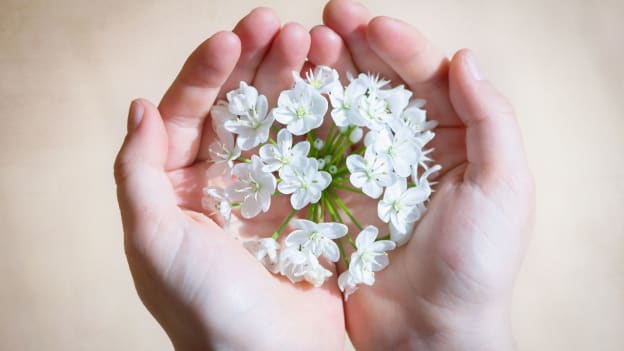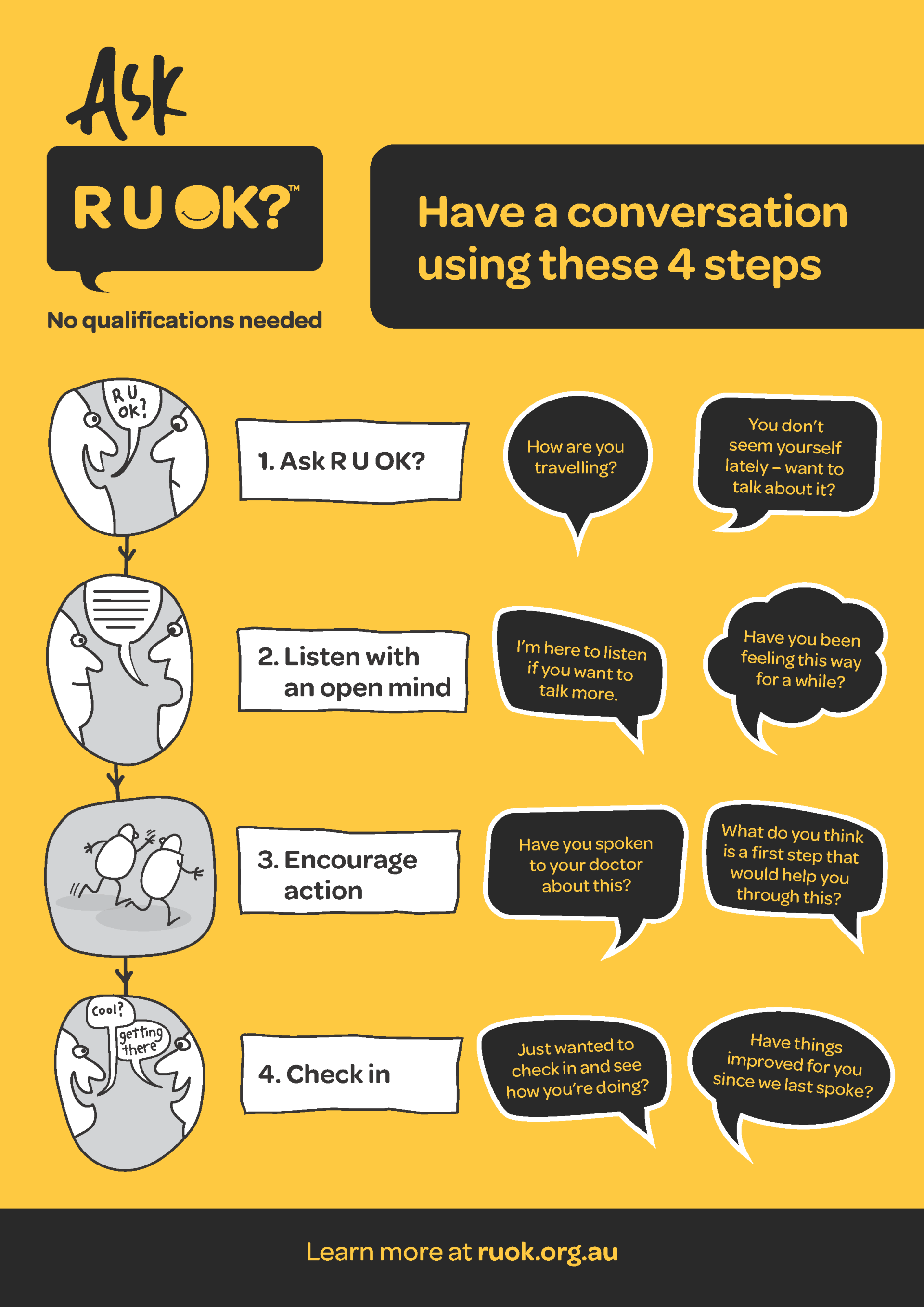It's time to ask: R U OK?

R U OK? Day in Australia is a day of action to bring wellbeing to the fore and, in many cases, even prevent the loss of lives by suicide. When someone we care about or encounter in our everyday life appears to be struggling, we are faced with an opportunity to reach out and start a conversation with the question: "R U OK?"
"If you feel like something’s not quite the same with someone you know – there’s something going on in their life or you notice a change in what they’re doing or saying – trust that gut instinct and take the time to ask," say R U OK? advocates.
Read more: Why NZ workers are on the verge of quitting
"By acting as 'eyes and ears' and reaching out to anyone who's going through a tough time we can show them they’re supported and encourage them to access help sooner."
Knowing the signs of when someone is struggling with their mental and emotional health can prompt other people – witnessing those changes – to break through and reach out.
In fact, a 2019 study by R U OK? showed that nearly two-thirds of Australians (63%) weren't all that confident in deciphering the signals of when someone is in a poor mental state.
And because many aren't sure of the signs, about two in five Australians (41%) opt not to approach a family member, friend or colleague in those circumstances.
Read more: How to address employee burnout
Asking this short everyday question, however, has been shown to save lives.
"By starting a conversation and commenting on the changes you’ve noticed, you could help that family member, friend or workmate open up," advocates said. "If they say they are not OK, you can follow our conversation steps to show them they're supported and help them find strategies to better manage the load. If they are OK, that person will know you're someone who cares enough to ask."
Here is a simple conversation guide for asking: R U OK?

















